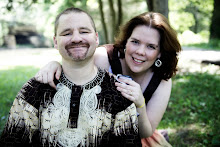Transportation Woes

Today I will be going to Chorkor and Amasaman. If I have time, I need to head up towards Shai Hills for one more visit. I love my work, but it's a challenge even on a good day. It's rainy season, but what can you do? The work must go on. It rained all night long, leaving most of the roads very muddy. I catch a taxi outside of my home, and load up the three boxes of groceries for Chorkor moms, the new uniform and school supplies for a child in Amasaman, and a box of baby food for the baby near Shai Hills. The taxi driver agrees to a rate of 10 cedis an hour.
I just finished my driving classes and dream of owning a car so that I can do my work more efficiently. But who can afford one? I've saved up a few thousand cedis so far, but it will be a while. The taxi it is. Off to Chorkor we go. Morning traffic isn't too bad today, so we get there in 2 hours. The taxi won't go back into the neighborhood, so I have to walk to find each mother to deliver the much needed food. The box weighs about 20 pounds, but they are short walks--less than a mile each.
It's about 11:30am now. I buy an ear of roasted corn to serve as my lunch on the go. Off to Amasaman. With traffic, it will take 3 hours to get to the village proper. We ran out of gas (taxis always run on empty!), which delayed us. It's around 3pm before we get to the village. Lots of the roads are impassible in this rickety old taxi. He won't even try to get to the school I need to go to. There's nothing to do but start walking. It's not too long of a walk--maybe 2-3 miles. My burden is light, with only the child's book bag of supplies. I find her at the school, pay the headmistress for the upcoming semester, and head back to the taxi. It's 4:30 now. Rush hour. I call my sister to ask her to pick up my 1 year old son from school, and to meet the other children when they arrive. "Can you make dinner? I know, I know. I'll pay you back."
At 8pm we roll in to Teshie. I didn't get to the Shai Hills baby today after all. Tomorrow then. I pay the taxi driver 120 cedis to cover today's transportation. I feel a little sick to my stomach--partly because I haven't eaten since noon and partly because I know that 120 cedis would have gone a lot further if only I had my own vehicle to drive; and maybe I would have been home a few hours earlier.
My baby is asleep on the couch and the older kids are doing homework. I eat cold fufu with light soup that my sister made. I give the evening baths to the kids. We dress for bed. I think about tomorrow. Shai Hills will be at least 2 hours. Hopefully the taxi can make it off the main road back to the children's home where the baby lives. Tomorrow will be an easy day. Just Shai Hills, a medical visit with 2 orphaned children, and then to the internet cafe to send emails and documents to the adoption coordinator in America. I should be home before dark. But now, it's time to sleep. In six hours a new day begins!
************************************************
Above is what a typical day might be like for my friend Muna--humanitarian director at The Ripley Foundation in Ghana. She is a STRONG. AFRICAN. WOMAN. The Ripley Foundation is currently raising funds for 2 new vehicles in Ghana--one for city traveling (a car/minivan) and one for rough traveling (a 4X4 SUV).
If I think about my old response to pleas for money to buy a vehicle, I am sort of ashamed. Giving money for a new vehicle would be one of the LAST things I would want my humanitarian dollars to go to. I want to give for FOOD and EDUCATION! Over the last 4 years it's become more clear to me that sometimes the least "s*xy" thing to give for, is the most needed. Oh, the money that is used most every day, just so that Muna can do her job! Oh, the limitations she (and her co-director, Joha) face only because they don't have a way to get to the people who need them! Donating funds so that they can purchase these vehicles *IS* donating funds for food and education. This is how the food and education reaches the people who need it. This is reality. And the reality right now is that the work of the Ripley Foundation (both adoption and humanitarian) is being severely inhibited by the fact that they do not have proper transportation.
TRF is not asking all of us rich Americans to give the money they need. They are just asking us to help. J and M are saving their own money to add to the pot--thousands of cedis. It just isn't enough. They need at least $15,000-$20,000 to purchase a reliable car and SUV in Ghana. Ugh. I feel deflated even writing that number. It seems so huge--too huge. However, if enough people spread the word--get the info OUTSIDE of the small Ghana adoption community--I trust that there are folks out there who can give. In the mean time, I'll be giving the small amount I can, trusting that eventually it will all add up. If you will join with me just CLICK HERE (and designate "Ghana Vehicle Campaign"). And please, consider spreading the word of this need as far and as wide as you can.
Love,
Anita










3 comments:
Oh. My. Lands. I would never have dreamed a vehicle would be so costly! A few thousand? Sure. But over 10??? Please don't hear me disbelieving YOU. I am just in shock! Oh my. The needs are sooo very great. Praying for this need! Thank you for alerting me to it. I will repost on FB. I cannot donate now. But I will hope to in the future.
Thank you for reposting! It's a double whammy because they need TWO vehicles. Right now Joha is borrowing a vehicle that he has to give back in August, and Muna is taking a taxi everywhere. The 4X4 SUV is what will be so costly. Hopefully they can purchase a simple but reliable car for city driving for $5-$7k, but the SUV will be more in the range of $15,000. And we are talking about USED vehicles! The roads are so very tough on vehicles there. All have to be shipped into the country. It's a mess, and in the end you spend more on a vehicle there than you would here. We checked into buying one here and having it shipped, but learned that would be even more costly once we paid duty. A HUGE intimidating need, but little by little we can do it! How do you eat an eleaphant? One bite at a time!
I remember the car woes of some of the humanitarian folks we were working with over there. It doesn't help the roads are often so pitted and potholed that repair bills become really high. It's better to buy the more expensive off road vehicle in the first place if you're venturing out into the village.
I can donate a little, Anita. Don't worry about asking for money. Us "rich" (not) Americans who have been there understand.
--FPM
Post a Comment